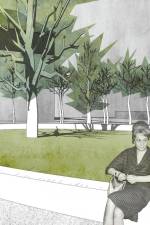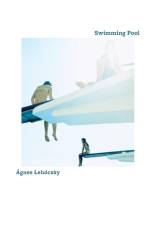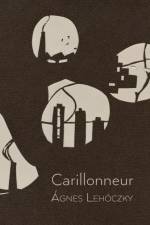av Ágnes Lehóczky
179,-
This book is a spectral zone, inhabited by dreams of rooms, urban spaces, mental spacetimes that offer paper and utopian projects for the homeless being in transit. These prose blocks describe paper squares of print as potential architectural holding-courts for the transitional mind and its selves in hyperreal dream trajectories at several thresholds at once. Each poem has its tutelary spirit, whether it be Boyer, Notley, Robertson, Nelson, Riley or Nemes Nagy, who acts as guide to the mind on its way among the bonds of words, through and by way of the afterlife scripts, negotiating strange solitary hermetic objects in these spaces, suffering with the being on its way the losses and laments of all that have been loved, enduring the difficult ghostliness of the plurality of fractured being within, toughening the failing will when challenged at the borders of the house of the body. Within the prose meditations, the voices accumulate, developing the doubling thematic of the two-in-one from Arendt to the Spirit Duplicator to generate a transient paper identity, the Eleatic stranger who accompanies the hobo-poet as ambiguous twin during their disappearing act, their transformation into organico-abstract word, their journey of self-exile towards the unfinished house of potential form. The Romantic lyric most sedulously dreamt up the poem as local habitation where the embodiments within doubling script can both take place and engender radical re-naming. These poems remember the lyric but build their habitations from the hybrid materia of experimental art, the language of the poetic imagination mashed up with the textures of theory, memoir, ephemera, history and story: from that material are these texts conceived and built, dwellings at the border of memory and nation, of Hungary and the UK, of dreaming and the hyperreal. These poems are sepulchral asylums, mausoleums, mazes for the wandering voice and its scripts. Leave your passports at the entrance, and enjoy the ride.In Lathe Biosas, or on Dreams & Lies, Ágnes Lehóczky brings a paranoiac-critical intensity to the imagining and trying-on of those spaces which might potentially contain a home for us. Starting with an extraordinary act of inhabiting the perspectives of a cubist portrait, in which every vanishing point is given equal and absolute credence, Lehóczky explores all the means and meanings of exile, from the temporary shelter among kind strangers to the paper houseboat, frail as a butterfly, which eve



